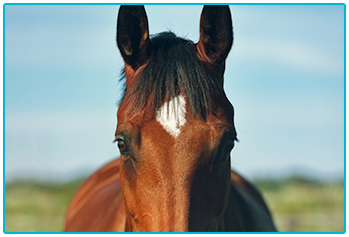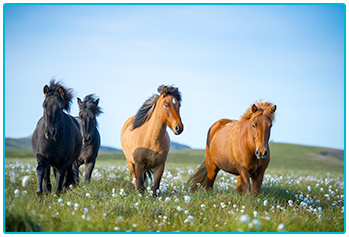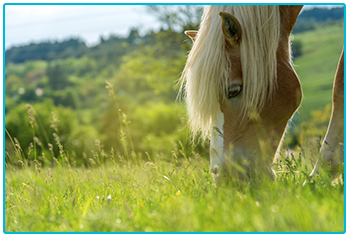Did you know that all horses, ponies, donkeys, mules and zebras are required to have an equine passport, even if they never travel further than their field? Here at The Insurance Emporium, when dealing with claims, we often find that horse owners can be complacent about updates to the information on their horse’s passport. This can have serious consequences, so we’re giving the following helpful advice on why you should have an equine passport, as well as how and why you need to keep it up to date.

Why does my horse need a passport?
Horse passports were introduced as a part of EU legislation, in order to protect the human food chain, ensuring that no horses treated with certain drugs end up being part of the human diet. Horses aren’t commonly eaten within the UK, but can be more popular on the continent. If the UK doesn’t comply with the equine passport scheme, it could result in certain essential medications being restricted or prohibited. The horse passport scheme isn’t set to change at all due to Brexit, no matter what the outcome.
When might you need a passport?
You must always be able to produce your horse’s passport within three hours of a request by an enforcement officer. An equine passport should also be taken along whenever your horse leaves or enters the country, takes part in competition, moves to a new location, is presented for slaughter, is being sold, used for breeding, is attended by a vet or transported.

If you can’t supply a passport
Failure to supply your horse’s passport when requested to do so can result in a £5,000 fine. You can also receive the fine if you fail to keep the passport up to date, so it’s really important that you do. The passport could need updating for a variety of reasons, including microchipping and castration, as well as changes to horse height, colour, address or ownership.
Microchipping
With the introduction of new equine identification regulations, it will become mandatory to have your horse microchipped, and proof of this will have to be added to your equine passport. It’s hoped that this will make it easier to trace lost, stolen or abandoned horses. The deadline for microchipping horses is different depending upon which part of the UK you live in:
- England – by 1st October 2020
- Wales – by 12th February 2021
- Scotland – by 28th March 2021

How to update equine passports
Updating or altering horse passports yourself is an offence. All updates need to be made by the relevant Passport Issuing Organisation. The BHS website has more information on how to go about updating your equine passport, and you can also download the Passport Update form.
Ensuring your horse has an equine passport and that it’s properly updated can make your adventures run more smoothly! Something else that can help to add peace of mind to your passion for horses could be looking at horse insurance. At The Insurance Emporium, we offer Horse Insurance with cover for Death, Theft or Straying as standard, and then you can pick from our range of Optional Benefits including Vet’s Fees. We also offer up to 30% discount*. Head to The Insurance Emporium to find out more!
* The 30% discount is made up of 20% Introductory Discount plus 10% Multi-horse Discount (if appropriate). The Introductory Discount is available for the first 12 premium payments on lunar and calendar monthly policies or one premium payment on annual policies.
All content provided on this blog is for informational purposes only. We make no representations as to the accuracy or completeness of any information on this site or found by following any link on this site. We will not be liable for any errors or omissions in this information nor for the availability of this information. We will not be liable for any loss, injury or damage arising from the display or use of this information. This policy is subject to change at any time.


